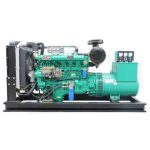Introduction
In the world of product development and validation, having a reliable source of power is crucial. Diesel generators have long been a popular choice for providing backup power in a variety of industries, including manufacturing, healthcare, telecommunications, and more. In this article, we will explore the importance of diesel generators for product validation, their key features, benefits, and considerations for selecting the right generator for your specific needs.
Importance of Diesel Generators for Product Validation
Product validation is a critical step in the product development process, where the performance and reliability of a product are tested under various conditions to ensure that it meets the required specifications and standards. In order to conduct accurate and reliable product validation tests, a stable and consistent power source is essential. This is where diesel generators come into play.
Diesel generators are known for their robustness, reliability, and efficiency, making them an ideal choice for powering critical equipment during product validation tests. Whether you are conducting thermal testing, vibration testing, or other types of validation tests, a diesel generator can provide the necessary power to ensure that the tests are conducted smoothly and accurately.
Key Features of Diesel Generators
1. Power Output: Diesel generators are available in a wide range of power outputs, from small portable units suitable for powering individual devices to large industrial generators capable of providing power to an entire facility. The power output of a diesel generator is typically measured in kilowatts (kW) or megawatts (MW), and it is important to select a generator with the right power rating for your specific needs.
2. Fuel Efficiency: Diesel generators are known for their fuel efficiency compared to other types of generators, such as gasoline or natural gas generators. Diesel fuel is less expensive and more energy-dense than gasoline, allowing diesel generators to run for longer periods of time on a smaller amount of fuel.
3. Durability: Diesel generators are built to withstand harsh environmental conditions and heavy-duty use. They are designed to operate continuously for extended periods of time without overheating or breaking down, making them a reliable choice for powering critical equipment during product validation tests.
4. Low Maintenance: Diesel generators require less maintenance compared to other types of generators, thanks to their robust design and simple operation. Regular maintenance tasks, such as oil changes and filter replacements, are easy to perform and can help extend the lifespan of the generator.
5. Quick Start-Up: Diesel generators are known for their quick start-up time, allowing them to provide power almost instantly in the event of a power outage or during product validation tests where a consistent power source is required.
Benefits of Using Diesel Generators for Product Validation
1. Reliability: One of the key benefits of using diesel generators for product validation is their reliability. Diesel generators are known for their ability to provide stable and consistent power, ensuring that the validation tests are conducted accurately and without interruptions.
2. Cost-Effectiveness: Diesel fuel is generally less expensive than gasoline or natural gas, making diesel generators a cost-effective choice for powering critical equipment during product validation tests. Additionally, diesel generators are known for their fuel efficiency, helping to reduce overall operating costs.
3. Versatility: Diesel generators are available in a wide range of sizes and configurations, making them suitable for a variety of applications and industries. Whether you need a small portable generator for field testing or a large industrial generator for powering a manufacturing facility, there is a diesel generator to meet your specific requirements.

4. Environmental Friendliness: Diesel generators are generally more environmentally friendly than other types of generators, such as gasoline generators. Modern diesel generators are equipped with advanced emission control systems that help reduce harmful emissions, making them a greener choice for powering critical equipment during product validation tests.
Considerations for Selecting a Diesel Generator
When selecting a diesel generator for product validation, there are several key considerations to keep in mind to ensure that you choose the right generator for your specific needs:
1. Power Requirements: Determine the power requirements of the equipment that needs to be powered during product validation tests. Calculate the total power consumption of all the devices that will be connected to the generator to determine the minimum power rating required for the generator.
2. Run Time: Consider the expected duration of the product validation tests and select a generator with a fuel tank capacity that can provide sufficient run time without the need for frequent refueling.
3. Portability: If you need to move the generator to different locations for conducting validation tests, consider the portability of the generator. Smaller portable generators are easier to transport and set up in different testing environments.
4. Noise Level: Diesel generators can be noisy during operation, so consider the noise level of the generator and whether noise restrictions apply in the testing environment.
5. Emission Regulations: Ensure that the diesel generator complies with local emission regulations and standards to minimize environmental impact and avoid potential fines or penalties.
Conclusion
Diesel generators play a critical role in powering critical equipment during product validation tests, providing a reliable and consistent power source for ensuring accurate and reliable test results. With Industrial diesel generator for pharmaceutical facilities , reliability, efficiency, and cost-effectiveness, diesel generators are a popular choice for a wide range of industries and applications. By considering key factors such as power requirements, run time, portability, noise level, and emission regulations, you can select the right diesel generator to meet your specific product validation needs.
